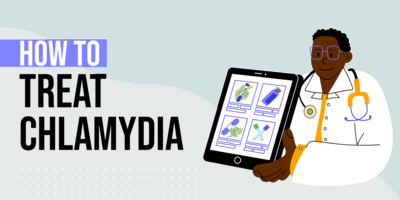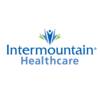
How to Treat Chlamydia
Chlamydia is a bacterial infection that is spread by sexual contact, according to the CDC. It is one of the most...
Read moreHelp patients book appointments with you on Solv. It's free!
20 instant-book locations

No more surprise bills. Solv is committed to making getting healthcare as easy as buying groceries at the store, including knowing the price of care upfront.

No more surprise bills. Solv is committed to making getting healthcare as easy as buying groceries at the store, including knowing the price of care upfront.

No more surprise bills. Solv is committed to making getting healthcare as easy as buying groceries at the store, including knowing the price of care upfront.

No more surprise bills. Solv is committed to making getting healthcare as easy as buying groceries at the store, including knowing the price of care upfront.






Help patients book appointments with you on Solv. It's free!
According to the CDC, everyone between the ages of 13 and 64 should get tested for HIV at least once as part of routine health care. However, those with certain risk factors should get tested more often. These risk factors include being a man who has sex with men, having had sex with an HIV-positive partner, having had more than one partner since your last HIV test, or having shared needles or works to inject drugs.
Getting tested for HIV is essential for several reasons. Firstly, it allows for early detection of the virus, which can lead to better health outcomes. According to the CDC, early treatment can help people with HIV live longer, healthier lives and also reduces the risk of transmission. Secondly, knowing your HIV status can help you make informed decisions about your health and the health of your partners.
Urgent care centers and walk-in clinics are convenient options for HIV testing. Medallus Urgent Care in Holladay and After Hours Medical Urgent Care in West Valley City are two nearby locations that offer HIV testing services. You can book same-day and next-day testing appointments at each through Solv’s website and mobile app.
Primary care providers are another option for HIV testing. If you have a primary care provider, you can ask them to add HIV testing to your routine health care.
There are also community health centers in and around Magna that offer free or low-cost HIV testing services. These centers are dedicated to providing comprehensive health services to their communities, including STD testing.
At-home HIV testing kits are another option. These kits allow you to take a sample at home and send it to a laboratory for testing. You can then access your results online.
While specific data on the prevalence of HIV in Magna is not readily available, we can look at data from Salt Lake County and nearby counties for a broader perspective. According to the CDC, Salt Lake County has a lower prevalence of HIV compared to the national average. However, the number of cases has been slowly increasing over the past decade, highlighting the importance of regular testing.
Risk factors for HIV in Magna are similar to those in other parts of the country. These include unprotected sex, having multiple sex partners, sharing needles for drug use, and having another sexually transmitted disease.
In addition to HIV, other STDs such as gonorrhea, chlamydia, syphilis, and hepatitis are also prevalent in Magna. These STDs also require regular testing, especially for individuals with certain risk factors. Similar to HIV, these STDs can be tested at local urgent care centers, primary care providers, community health centers, and via at-home testing kits.
Solv has strict sourcing guidelines and relies on peer-reviewed studies, academic research institutions, and medical associations. We avoid using tertiary references.
Everyone between the ages of 13 and 64 should take an HIV test at least once in their lives. Some people are more likely to get HIV and should be tested more regularly. Those who have had sex with an HIV-positive partner, those who inject drugs, sexually active gay men, and those who have unprotected sex are all included. You should get checked every 6-12 months if you have any of these risk factors.
Antibodies created by your body in reaction to the virus are examined in HIV tests. A blood test or a sample of cells obtained from the inside of the cheek can be used to do this. After that, the sample is transported to a lab, where a technician will look for antibodies.
It can take a long time for your body to build enough antibodies for an HIV test to detect the illness if you become sick. It may take 3-12 weeks for your blood to contain adequate antibodies. Even if you have HIV, you could have a negative test result during this time.
Because the sample must be sent to a laboratory for investigation, most HIV test results might take anywhere from a few days to several weeks. On the other hand, some Magna clinics or doctor's offices may offer rapid HIV testing, which can deliver a diagnosis in as little as 20 minutes. Rapid HIV testing involve a little sample of blood or fluid obtained from the mouth. You'll need a follow-up blood test to confirm the diagnosis if a fast test comes up positive.
A variety of factors influence the cost of an HIV test, including the type of test you receive, the location where you are tested, and whether or not you have health insurance. HIV testing may be provided for free or at a low cost by some clinics or health authorities. If you're a college student, you might be able to get free HIV tests through your school.
The majority of insurance coverage cover HIV testing. The Affordable Care Act mandates that all new health plans provide free HIV testing for those aged 15 to 65. If you have any doubts about what is covered under your individual health plan, you can always call your insurance company or go to their website.
Many Magna health clinics, doctor's offices, and the health department offer HIV testing. Some pharmacies with on-site clinics may also be able to give HIV testing. Even though some clinics accept walk-in appointments, making an appointment ahead of time will save you time and ensure that you receive your test on the same day.
Yes, Solv offers same-day and next-day HIV testing appointments. We collaborate with thousands of healthcare providers across the country to make it easier for everyone to access the medical assistance they require quickly and conveniently. On our website, you can choose a physician near you and make an appointment right now.
Simply type "HIV test" and your location into our website's search box. You'll find a list of providers and their available appointment times on the next page. Fill out the form to arrange an appointment at a time and location that is convenient for you. Make certain that your appointment is for "HIV testing."
Although there are several home HIV tests available, not all of them are accurate or FDA-approved. For a home test, you'll need a swab from the inside of your mouth or a blood sample taken with a finger pricker. If you get a positive result on a home HIV test, you should see a doctor to confirm the diagnosis and start treatment.
Annual Wellness Exam in Magna
Chickenpox Vaccine in Magna
DOT Exam in Magna
Ear Wax Removal in Magna
Eye Exam in Magna
Flu Shot in Magna
Hepatitis Vaccine in Magna
Measles Vaccine (MMR) in Magna
Pap Smear in Magna
Physical Exam in Magna
Shingles Vaccine in Magna
Sinus Infection Treatment in Magna
Sports Physicals in Magna
Tetanus Shot in Magna
Typhoid Vaccine in Magna
Well-Woman Exam in Magna
Yellow Fever Vaccine in Magna
A1C Test in Magna
CMP Test in Magna
Chlamydia Test in Magna
Diabetes Test in Magna
Gonorrhea test in Magna
H Pylori Test in Magna
HIV Test in Magna
Hepatitis test in Magna
Herpes Test in Magna
Mono Test in Magna
Pregnancy Test in Magna
STD Testing in Magna
Strep Test in Magna
Syphilis test in Magna
TB Test in Magna
Thyroid Test in Magna
Trichomonas Test in Magna
Vitamin D Test in Magna
Tips, advice, news—your resource to stay healthy and safe while improving your experience with healthcare providers when you need them.